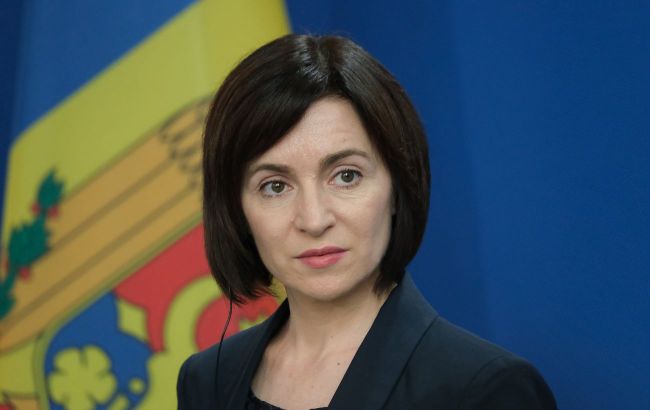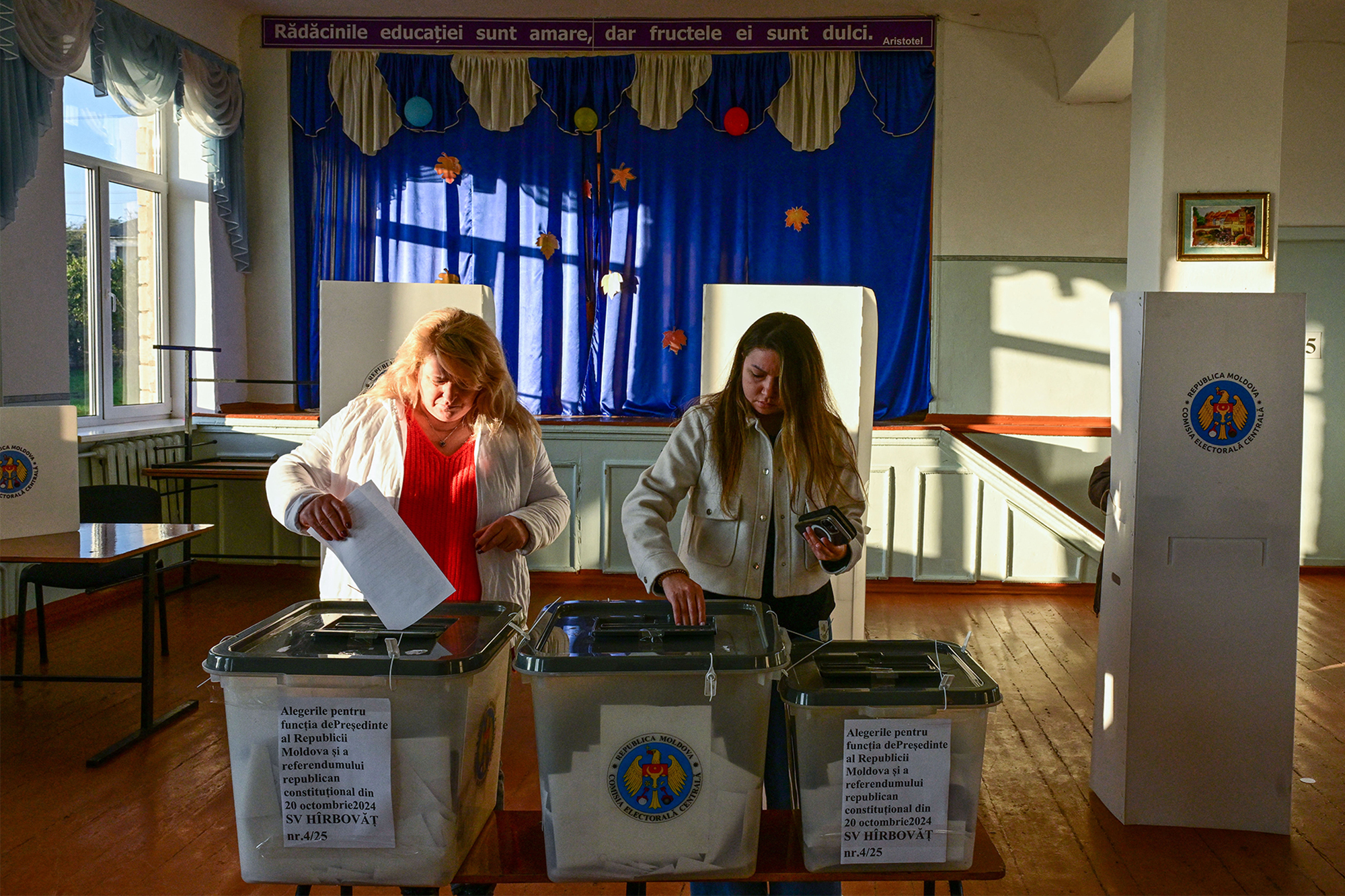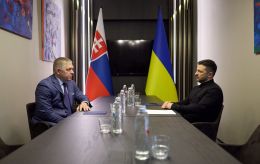Victory with hint of defeat: Insights from Moldova's referendum and elections
 Photo: President of Moldova Maia Sandu failed to win in the first round (Getty Images)
Photo: President of Moldova Maia Sandu failed to win in the first round (Getty Images)
Moldova held the first round of presidential elections and a referendum on enshrining the European course in the country’s constitution. The results of both votes are somewhat surprising.
What is happening in Moldova and what to expect next — read in the report by RBC-Ukraine.
Contents
Referendum on the edge
RBC-Ukraine reported that the referendum is important in two aspects. It is significant symbolically, as it aims to enshrine Moldova's course towards the European Union in the constitution. At the same time, the referendum serves as a political tool to help Maia Sandu mobilize more of her voters at the polls.
Polls indicated that a majority of the population in Moldova supports the European course. However, in the country itself, a minority voted in favor. Additional votes came from the Moldovan diaspora, which is traditionally pro-European. Thus, until the last moment, it was unclear what the results would be.
The Central Election Commission of Moldova has yet to count 1.5% of the ballots, which will not affect the final outcome. Currently, a slight majority of 50.09% voted "for" joining the EU.
Several factors contributed to this result.
"First, there were those who were against, namely the core pro-Russian electorate. The Russian Federation actively worked to expand its base, essentially by frightening Moldovans. They tied the future drift towards the EU to NATO, suggesting that military bases would follow. This escalates the situation and provokes Moldova's involvement in the war," says political analyst and managing partner at PGR Consulting Group LLC Ruslan Rokhov.
Electoral "networks" established by Moldovan oligarch Ilan Shor, who is currently in exile, also played a significant role. According to Moldovan police, he built a network of around 130,000 voters who were supposed to vote for the pro-Russian candidate, which constitutes about 10% of all voters. These "networks" evidently increased the number of those who voted against Moldova's European course in the referendum.
The referendum also revealed another important trend. More than 732,000 voted "for" the referendum, while over 635,000 voted for Maia Sandu.
"Those in favor of changes to the constitution to include a pro-European direction outnumber those who voted for Maia Sandu by approximately 100,000. In other words, 100,000 citizens of Moldova voted in the referendum for amendments but did not vote for the incumbent president," says Rokhov.

Photo: the majority of Moldovan citizens inside the country did not support changes to the constitution regarding EU accession, but the diaspora ensured the result (Getty Images)
The referendum will indeed enshrine Moldova's pro-European course in the constitution but will not affect the actual accession process.
For Moldova to become an EU member, it must undergo a complex procedure involving both internal reforms and the agreement of EU member states to its accession. Thus, a key question remains: who will ultimately be in power in Moldova, and which direction will they lead the country?
Risks of the second round
Incumbent President Maia Sandu was unable to secure enough votes to win in the first round, although she did come in first place.
Recent opinion polls indicated her leadership, with 30-35% of voters in the country willing to support her. During the voting, she gained some votes from those who came to participate in the referendum, as well as from the diaspora, which constitutes about 15% of voters and is generally more pro-European. After counting 98.51% of the votes, Maia Sandu received 42.07%.
She will face off in the second round against socialist candidate Alexander Stoianoglo, who garnered over 26.27%. Before the elections, his ratings hovered around 10-15%.
Notably, in her home district, the incumbent president placed only third, with 23.5%.
In such circumstances, it will be extremely challenging for Sandu to be re-elected for a second term, particularly since she has no additional sources for votes. Support for Sandu in the second round may come only from the voters of candidates Octavian Țîcu and Andrei Năstase, who received less than 1% of the vote. The referendum as a turnout-boosting technology only worked in the first round, and Sandu will not have that "bonus" in the second.
On the other hand, voters who voted "against" the referendum will have added motivation to participate in the second round to effectively block the European course by changing the leadership of the country.
"I assume that those who voted against the referendum, and as a result found it unsuccessful (since they wanted to assert their opposition but suffered a defeat), will mobilize to participate in the second round of the elections. That’s over 730,000 votes, which is more than Maia Sandu received in the first round," says Rokhov.
The "networks" will also likely remain influential in the second round. It is also expected that Stoianoglo will gain support from other candidates with significant ratings.
According to Rokhov, under these conditions, the opposition is unlikely to contest the results of the referendum, as the election results open up opportunities to block the European course while in power.
Maia Sandu's team will need to quickly find a way to improve its position. On the morning of October 21, she made a brief address. She stated that there is "clear evidence" that criminal groups working in conjunction with foreign forces hostile to Moldova's interests attempted to buy 300,000 votes.
"Their aim was to undermine the democratic process. Their intention was to instill fear and panic in society... We await the final results, and we will respond with firm decisions," said the President of Moldova.
However, what these decisions will be remains unknown. It is also unclear whether they will have any impact on the results of the second round of elections.
Sources: data from the Central Election Commission of Moldova, local media publications, and comments from political analyst and managing partner of PGR Consulting Group LLC Ruslan Rokhov.

